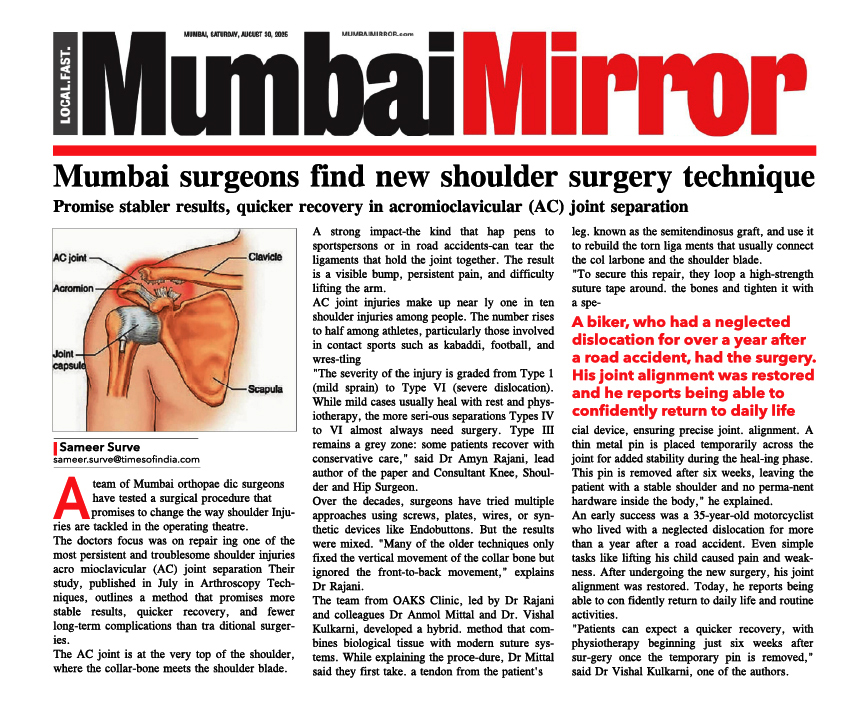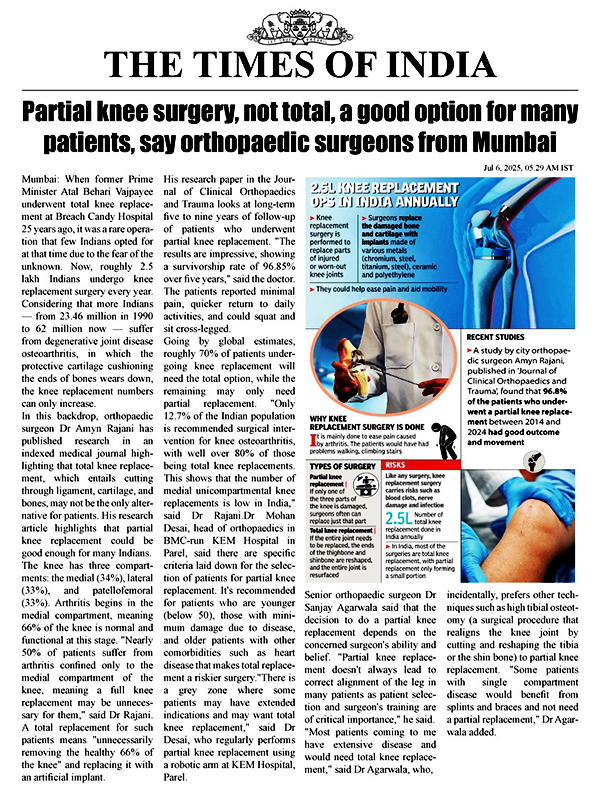Though less common than Total Knee Replacement, Shoulder Replacement is just as successful in relieving joint pain. It involves removing the damaged parts and replacing them with artificial components, called prosthesis. The surgery not only relieves you from your unbearable chronic joint pain, but also improves your day-to-day mobility.
Let’s have a look at the conditions that may require you to undergo Shoulder Replacement Surgery:
- Osteoarthritis: Shoulder osteoarthritis is the gradual wearing off of the articular cartilage and your risk of developing this type of arthritis increases as you age.
- Broken Shoulder: You may need a Total Shoulder Replacement Surgery to repair your badly broken shoulder bone.
- Rheumatoid Arthritis: It is an autoimmune shoulder disorder, something which could cause severe pain in both sides of your shoulders at the same time.
- Severe Fractures: A severe shoulder fracture is one of the common reasons why your Shoulder Specialist in Mumbai suggests you to undergo shoulder replacement surgery. The three types of shoulder fractures include: Clavicle Fracture, Proximal Humerous Fracture and Scapula Fracture. All 3 types of fractures can cause swelling, extreme shoulder pain and limit your shoulder’s usual everyday range of motion.
Did you know?
Fractures of the shoulder scapula are usually caused by high-energy trauma.
The Perfect Age to Undergo Shoulder Replacement Surgery:
Age is definitely not a factor in the success of a Total Shoulder Replacement Surgery and Shoulder Specialist in Mumbai, Dr. Amyn Rajani, feels that it is the disability and not age that’s the criterion to undergo shoulder replacement surgery. Sometimes, extreme obesity may cause post-surgical complications and your orthopaedician may suggest you to follow a fitness regime, months or days before you undergo the knife.
What Happens During The Shoulder Replacement Procedure?
During the 2-hour-long surgery, you will be put under anaesthesia and the surgeons will replace the damaged joint “ball,” known as the humeral head, of the shoulder with a metal ball.
The Recovery Process:
You will most certainly experience some amount of pain during the recovery period, but it will be all worth it when, after 6 months, your shoulders will give you the signal that you are absolutely ready to play your favourite sport without any complications. Before that, you can resume with your day-to-day activities within two to six weeks of surgery.





